Humans are often inclined to see themselves as the apex of nature on Earth. Social insects may make up a quarter of living animal mass, sharks may be a vastly older lineage than hominins, and the very air we breathe owes its composition to plants but…humans invented digital watches, humans clutter the night sky with satellites, and perhaps most importantly of all, humans have the largest buttock to body mass ratio of any known species. Clearly, to quote A. E. Van Vogt, we are “the race that shall rule the sevagram”.
A key phrase above is “on Earth.” Most of the universe is not on Earth. How upsetting it would be to encounter a technologically superior extraterrestrial (or extradimensional) civilization for whom humans are beneath notice—or worse, pests to be exterminated. Consider these five vintage tales.
“Child of Void” by Margaret St. Clair (1949)
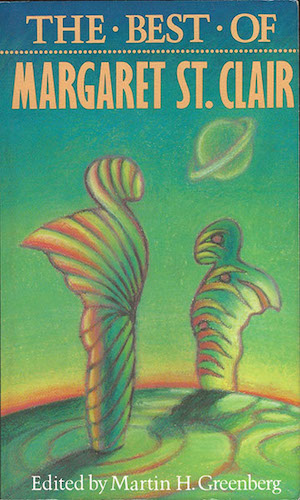
Fleeing a big city for the bucolic comforts of the country, a single mother and her children discover their isolated farmstead is isolated for a reason. Hidden Valley abounds with inexplicable, alarming phenomena. That’s because Hidden Valley is home to unpleasant energy-beings little interested in human preferences regarding basic physics. Unable to overpower the beings and unwilling to leave, the humans will have to find some means of co-existence. Step one: get the aliens’ attention. Step two: search for a way to survive step one without dooming humanity.
Hands up, everyone who is surprised that managing to attract the attention of vastly powerful entities might be worse than living with oblivious, powerful neighbors?
The Kraken Wakes by John Wyndham (1953)
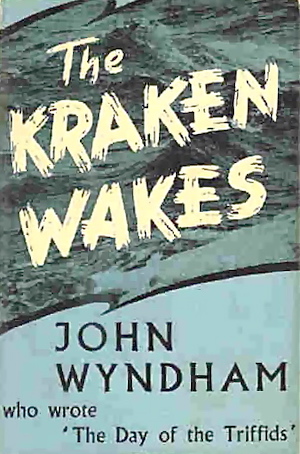
If the fireballs that light up Earth’s sky are indeed alien spacecraft, then their methodical selection of the Earth’s deepest oceans suggests reason for hope. The aliens seemingly require pressures found only at the bottom of the abyssal deeps. Contact seems unlikely. Without contact, why should there be conflict?
Humanity is slow to grasp that they are on the losing side of a protracted struggle. Earth, it seems, is not quite up to the alien housing code. The unseen aliens appear indifferent to human suffering as the Earth warms and the sea levels rise. Should humans attempt to use their nuclear weapons to rebuke the visitors? The aliens have direct means of expressing displeasure.
The aliens in this novel simply crank up the heat like side effects don’t matter to them. I accept all kinds of wild science fiction ideas, but it seems unlikely that any civilization would wantonly induce planetary climate change without taking some steps to avert catastrophic ecological collapse. What kind of idiots are transforming the Earth?
Day of the Star Cities / Age of Miracles by John Brunner (1965/1973)
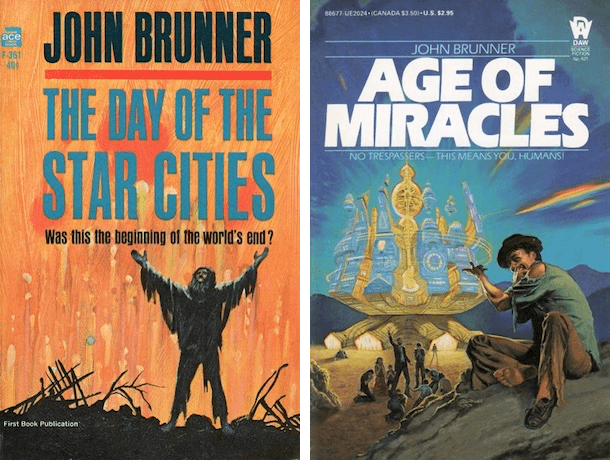
First contact with Earth’s new owners came when every lump of fissionable material on Earth spontaneously detonated. By the time human governments restored some semblance of stability, vast alien cities had been established. Aside from ensuring humans cannot threaten them, the star city’s builders have little interest in humans. Humans, on the other hand, have considerable interest in the aliens. If we cannot drive Earth’s new masters away, then perhaps we can exploit them… provided humans are careful not to annoy their new neighbors in the process.
Alien pest control includes the aforementioned nuke-go-boom field and proximity-triggered madness. Because we never get the alien point of view, it is unclear if these were created with humans in mind or if they are just standard kit for all the worlds the aliens claim. However, both are area weapons, not targeted at specific people.
As with the previous story, getting the otherwise aloof aliens’ full attention is a very bad idea, particularly if the storehouse of stolen alien artifacts one has amassed is in the room directly beneath one’s office.
Of Men and Monsters by William Tenn (1968)
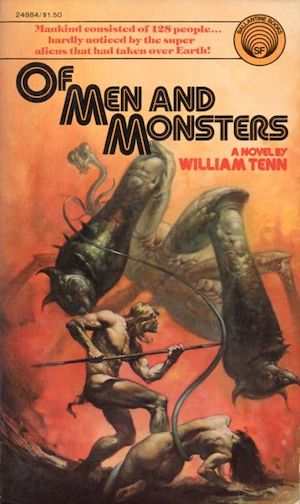
The aliens who commandeered Earth are not merely vastly superior to humanity; they are much larger as well. Humans underfoot risk being trampled literally as well as figuratively. Small wonder prudent humans hide within alien walls like mice in human domiciles.
Although they’ve lost control of their world, humans retain some of their old customs, including rites of passage. Young Eric must venture into the alien homes to retrieve some useful item. Many have set out on such quests. A smaller number have returned. If Eric can survive, it is possible he will return with a treasure long lost to humans: hope.
Among his various proclivities, Tenn was a satirist. It should not surprise readers that on occasion humor inspires him to pursue the parallels between humans living like mice and actual mice living like mice farther than one might expect.
Roadside Picnic by Arkady Strugatsky & Boris Strugatsky (1972)
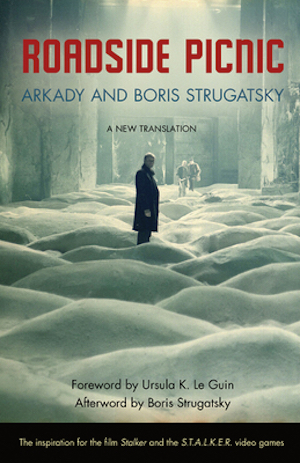
Unlike the previous examples, the aliens in this Russian classic had no interest in colonizing Earth. The reason for their brief sojourn may never be known. What is known is that the visitors left enigmatic, often dangerous relics in the so-called Zone. Sufficiently brave humans search out and retrieve these relics. The lucky ones scrape out a living. The unlucky provide edifying cautionary tales about the dangers of tampering with the unknown.
Roadside Picnic was enough of an obvious classic to attract translation soon after it was published. Unfortunately, the earlier translations are not quite what one might hope, so I recommend readers seek out the more recent University of Chicago translation.
***
No doubt there are many classics I could have mentioned but did not. No doubt many of you have favorites not mentioned above. Feel free to mention them in comments below.
In the words of fanfiction author Musty181, four-time Hugo finalist, prolific book reviewer, and perennial Darwin Award nominee James Davis Nicoll “looks like a default mii with glasses.” His work has appeared in Interzone, Publishers Weekly and Romantic Times as well as on his own websites, James Nicoll Reviews (where he is assisted by editor Karen Lofstrom and web person Adrienne L. Travis) and the 2021, 2022, and 2023 Aurora Award finalist Young People Read Old SFF (where he is assisted by web person Adrienne L. Travis). His Patreon can be found here.










